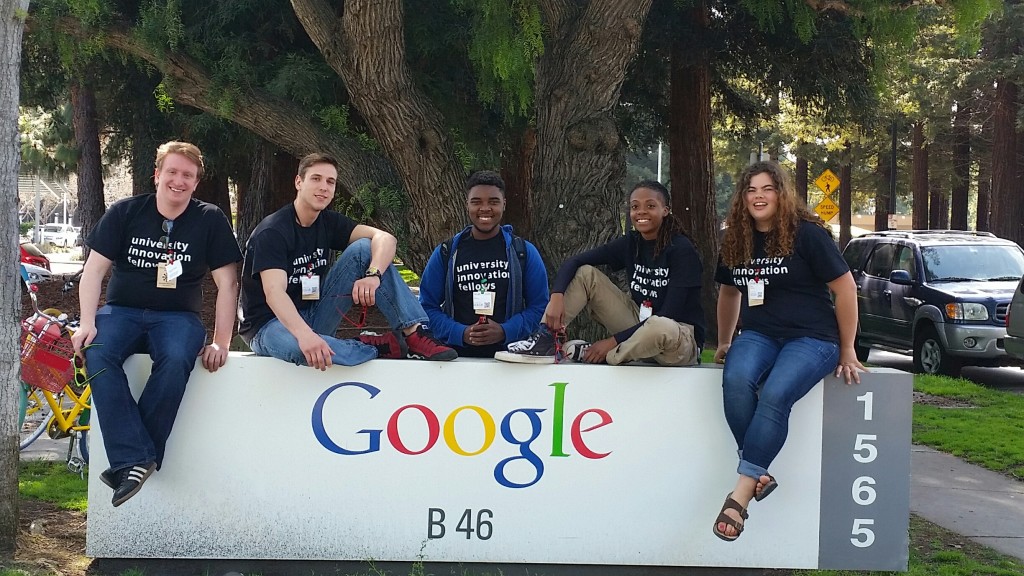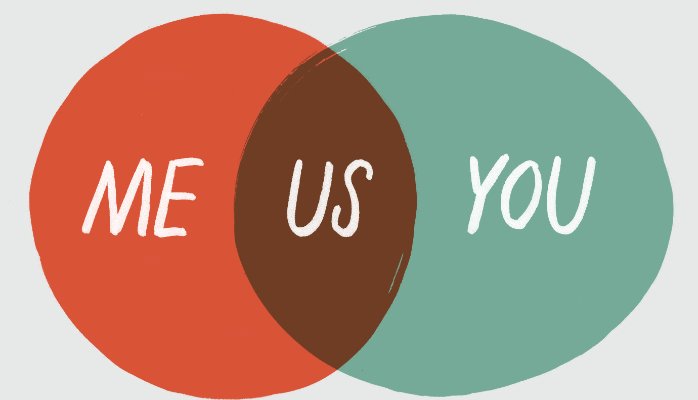6 Life Lessons I Learned During Spring Break At Google: How a day in Silicon Valley changed my perspective
Written by DJ Jeffries, University Innovation Fellow from Southern Illinois University Carbondale.
This post first appeared in Odyssey on Mar 23, 2016.
When you say, “spring break,” most college students probably think martinis and tiny weeny bikinis, but my spring break was nothing like that. I had the great fortune of spending a day at Google in Mountain View, CA as a University Innovation Fellow (UIF). My break included spending time with some of the brightest and driven individuals in the country. There, we had a fantastic, inspiring and enlightening time led by University Innovation staff and fellows, in partnership with Google employees. There were so many great ideas presented and I wish I could share them all, but here are six things that applied directly to my experience as a college student.
1. Think, Act, Do Intentionally
Walking into Google, I had no idea what to expect, except for that I’d be blown away. Needless to say, I was not disappointed. At Google, we were asked to step outside of our comfort zones and do a variety of tasks that required us to work with people that many of us had never met before. We were asked to brainstorm great, and sometimes life-changing, ideas in just a matter of minutes. We did not have time to do things without purpose. As a result, anything we thought or did needed to be intentional. In terms of life, think about things you do regularly and question them. Ask yourself do these things matter and/or what purpose do they serve?
4. Take Your Well-being Seriously
From what I saw during my limited time at Google, as a company, they take wellbeing extremely seriously. As part of our day, we had a member of the mindfulness team come lead us in a mindfulness exercise. If Google is willing to invest money in the wellbeing (physical, mental and emotional) of their employees, you can assume that it’s pretty important. Quality work starts with you. To be a better you, you need to make a better you. Be conscious, be purposeful, and above all, take your wellbeing seriously.
5. Be Flexible
One of the most provoking exercises for me was also one of the most simple. It was something we all know: Rock, Paper, Scissors. But there was a twist. Three-hundred students in a room played and they set out to find a single champion. They knew there’d be losers, and that was part of the twist. If you lost, you become the biggest fan of the person who won. It ended up becoming the most intense games of Rock, Paper, Scissors that I’ve ever experienced. But what was really cool was that even though the majority of us lost, we were eager to cheer for those who beat us. We wanted them to win. The life lesson there is to be flexible. Realize that your idea might not always be the winning idea but if you cheer for the person who does win, you win. And if you’re lucky, you win big!
6. Don’t Be Afraid to Fail Quickly (and Often)
The last thing I got from Google is to not let a fear of failure control you. Be motivated by the idea that you might fail, and as a result, you’ll receive a unique opportunity to learn from it. Don’t be discouraged or fearfully cautious. Be driven by dreams and not fears. Go out and do the right thing!

DJ Jeffries (Twitter, Facebook, LinkedIn, Bio)
Scholar, Innovator and Entrepreneur. Harmony above all.








